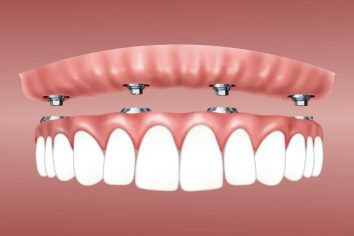Protein Diet: A Comprehensive Guide to Optimal Nutrition

Introduction
Protein diets have gained significant popularity in recent years due to their potential benefits in weight loss, muscle gain, and overall health improvement. This article aims to provide a thorough overview of protein diets, including an explanation of what they are, various types, their popularity, and quantitative measurements. Additionally, we will discuss the differences between different protein diets, analyze their historical pros and cons, and provide valuable insights for individuals seeking to adopt a protein-centered eating plan.
1. Understanding Protein Diet

Protein diet, also known as a high-protein diet, is a nutritional approach that emphasizes consuming a higher proportion of protein-rich foods while moderating carbohydrate and fat intake. Protein is an essential macronutrient that plays a crucial role in building and repairing tissues, supporting immune function, and supplying energy. By focusing on protein consumption, individuals aim to enhance satiety, boost metabolism, improve body composition, and support overall well-being.
2. Types and Popularity
a) Low-carb High-protein Diet: This approach restricts carbohydrates while promoting a higher intake of protein-rich foods such as lean meats, poultry, fish, eggs, and dairy products. It has gained popularity among those aiming to lose weight, as it may aid in reducing hunger and supporting fat loss.
b) Ketogenic Diet: A ketogenic diet is an ultra-low-carb, high-fat, and moderate-protein eating plan that induces ketosis, a metabolic state in which the body burns fats as its primary fuel source. This diet has gained attention for its potential benefits in weight loss, improved blood sugar control, and increased mental focus.
c) Plant-Based Protein Diet: Suitable for vegetarians and vegans, this approach focuses on plant-based protein sources like legumes, tofu, tempeh, seitan, quinoa, and various nuts and seeds. It offers an alternative to animal protein while still providing all essential amino acids necessary for optimal health and muscle growth.
d) Paleo Diet: The paleo diet emphasizes consuming lean proteins, fruits, vegetables, and healthy fats while excluding grains, dairy, legumes, and processed foods. It aims to replicate the eating patterns of our ancestors and has gained popularity for potential weight loss and improved overall health.
3. Quantitative Measurements
Protein consumption differs based on individual factors such as age, gender, activity level, and specific goals. However, general guidelines suggest a daily protein intake between 0.8-1.2 grams per kilogram of body weight. Athletes and individuals engaging in intense physical activity may require higher protein intakes, ranging from 1.2-2.0 grams per kilogram. It is essential to consult a healthcare professional or registered dietitian to determine the ideal protein intake based on individual needs and goals.
4. Differences Between Protein Diets
Each protein diet mentioned above differs in terms of macronutrient ratios, food choices, and specific guidelines. Low-carb high-protein diets focus on restricting carbohydrates, while ketogenic diets significantly reduce carbohydrate intake and increase fat consumption. Plant-based protein diets exclude animal products, offering a solely vegetarian or vegan approach. The paleo diet eliminates processed foods, grains, and dairy, focusing on whole foods. Understanding these differences is crucial when choosing the best-fitted protein diet approach for an individual’s lifestyle and preferences.
5. Historical Pros and Cons
Over the years, protein diets have faced praise and criticism based on their potential effects on health and weight management. Some benefits often associated with protein diets include enhanced satiety, increased muscle mass, improved blood sugar control, and reduced risk of chronic diseases. However, concerns have been raised about long-term sustainability, potential nutrient deficiencies, and adverse effects on kidney function. It is vital to approach any diet with balance and consult professionals to address individual concerns and monitor overall health.
Conclusion
Protein diets offer a variety of approaches for individuals seeking to improve their nutrition and achieve specific health or fitness goals. By understanding the differences, potential benefits, and historical pros and cons, one can make informed decisions when adopting a protein-centered eating plan. Remember to consult with healthcare professionals or registered dietitians before making significant dietary changes to ensure personalized recommendations aligned with individual needs and preferences.
By making protein an essential component of your diet, you can unlock its potential benefits and pave the way for a healthier lifestyle. Watch the video below to gain further insights into incorporating protein into your everyday meals and discover delicious recipes that will satisfy your taste buds while fueling your body.
FAQ
Are all protein diets the same?
Are there any potential drawbacks to protein diets?
What are the benefits of a protein diet?
Fler nyheter
Lifewave ljusbaserade produkter för hälsa och välbefinnande
Introduction Protein diets have gained significant popularity in recent years due to their potential benefits in weight loss, muscle gain, and overall health improvement. This article aims to provide a thorough overview of protein diets, including an...
03 februari 2026
Personlig service hos din optiker i Uppsala
Introduction Protein diets have gained significant popularity in recent years due to their potential benefits in weight loss, muscle gain, and overall health improvement. This article aims to provide a thorough overview of protein diets, including an...
02 februari 2026
Tandimplantat en trygg och långsiktig lösning för förlorade tänder
Introduction Protein diets have gained significant popularity in recent years due to their potential benefits in weight loss, muscle gain, and overall health improvement. This article aims to provide a thorough overview of protein diets, including an...
11 januari 2026
Massage i Helsingborg: Avkoppling, återhämtning och friskare kropp
Introduction Protein diets have gained significant popularity in recent years due to their potential benefits in weight loss, muscle gain, and overall health improvement. This article aims to provide a thorough overview of protein diets, including an...
05 januari 2026











